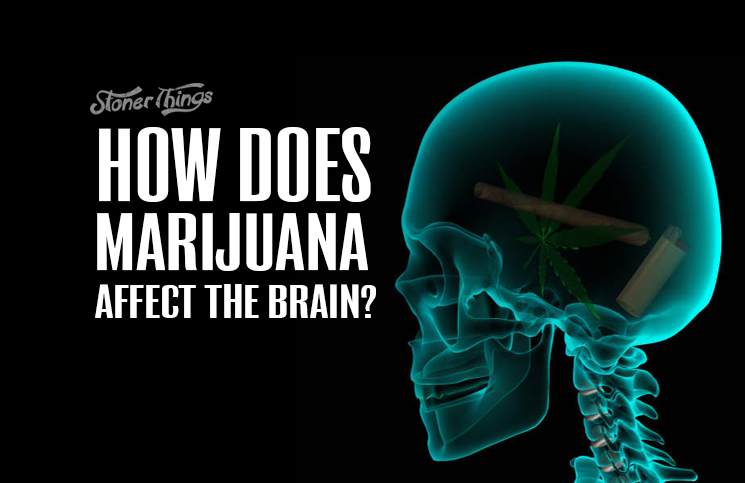How does marijuana affect the brain? For marijuana users, the commonly observed effects of smoking a joint or eating a marijuana-laced edible is the result of a process that begins with the introduction of THC into the body, and ends with its action on specific cells in the human brain. Although it occurs within a matter of seconds (longer if the marijuana is ingested orally in an edible), getting high on marijuana is a fairly complex process.
When marijuana is smoked or eaten, the primary active ingredient in the drug – tetrahydrocannabinol or THC – enters the bloodstream. When marijuana is smoked, the process by which THC enters the bloodstream takes mere seconds. When ingested orally as with food, this action takes much longer, because the THC will first have to be absorbed into the stomach lining, from where it makes its way to the various organs of the body, including the brain. This is where the most significant actions of THC take place.
So, how does marijuana affect the brain?
THC binds to CB1 receptors
The human brain contains millions of special cells called receptors which react to substances that come in contact with or bind to it. With respect to THC, the relevant receptors in the human brain are those called CB1. When THC binds to these receptors, they send signals to the brain that produce the effects commonly associated with marijuana use. These include psychoactive effects such as relaxation, calm, focus, alertness, and a general sense of well-being, but they can also involve anxiety, agitation, paranoia and hallucinations.
The brain also produces physical effects when marijuana is used, including a drowsy or sleepy feeling, pain relief, and muscle relaxation. The strength and even the presence of these effects are dependent on the particular strain of marijuana used, and they are a large part of what makes marijuana so useful as a type of medication for a variety of symptoms and health conditions.
Potential long-term effects
Most of marijuana’s effects on the brain are considered to be fairly insignificant, and most will fade away within a few hours leaving little to no trace of a hangover. However, studies have shown that marijuana use may actually produce medium to long-term effects on the brain, some of which medical science is only just beginning to understand. Furthermore, a study conducted by researchers at the Center for Brain Health at The University of Texas suggested that the effects of long-term marijuana use on the brain is dependent on a number of key factors, including the age at which marijuana was first used, and how long the individual has been using marijuana.
One of the most significant findings in the study, which has since been published in the Proceedings of the National Academy of Sciences (PNAS), is that chronic marijuana users appears to have smaller brain volume compared to those who never use the drug or do so only occasionally. With the use of MRI procedures, researchers have detected abnormalities in the brain, the full implications of which may only become apparent many years later.
Interestingly enough, although the smaller volume results in a decline in the brain’s structural wiring, chronic marijuana users seem to compensate with more intense connectivity processes. For this reason, many chronic marijuana users do not seem to display any adverse effects despite their habit. At present, more research is required in order to determine the full implications of marijuana’s effects on the brain.













